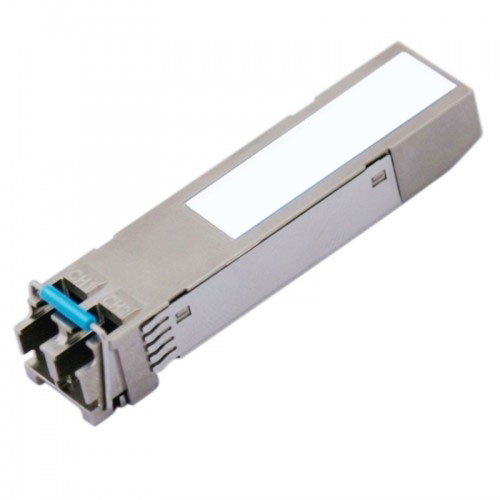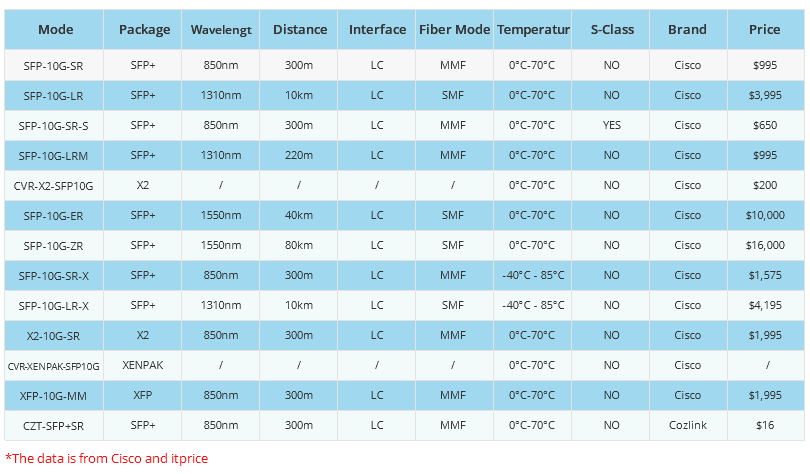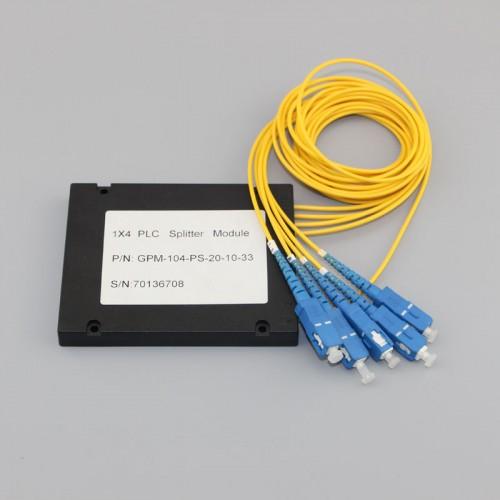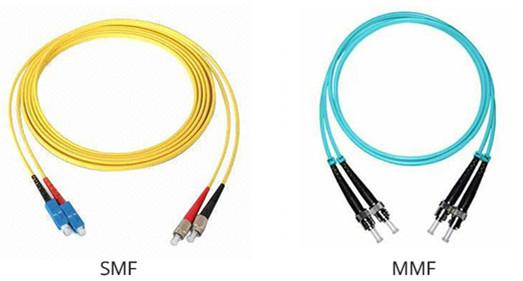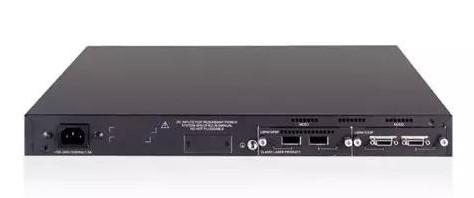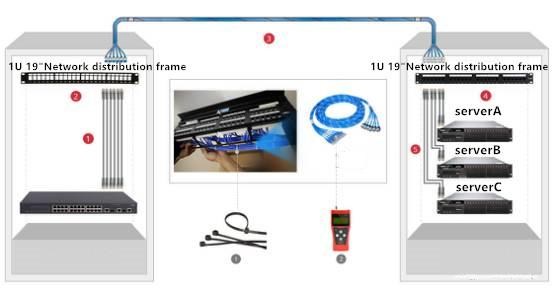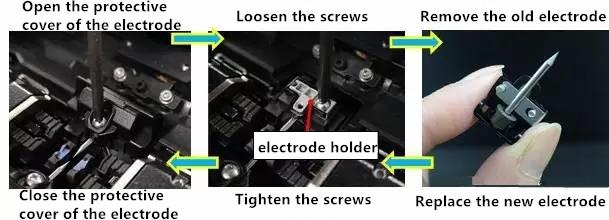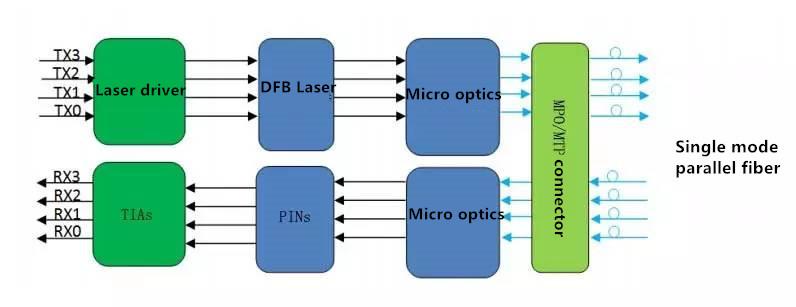- Related articles
- All Cisco GLC-SX-MMD's information (List price,Specs, Datasheet PDF, Compatibility matrix)
- How do they differ? PCI vs PCI-E vs AGP
- What is small form factor pluggable?
- Optical Transceivers for Cisco WS-C2960-48PST-L Switch
- Optical Transceivers for Cisco WS-C2960CG-8TC-L Switch
- All Cisco DWDM-XENPAK-55.75's information (List price, Specs, Datasheet PDF, Compatibility
- Optical Transceivers for Cisco SLM2048PT-UK-RF Switch
- Optical Transceivers for Cisco WS-C3650-24PS-E Switch
- All Cisco GLC-LH-SM's information (List price, Specs, Datasheet PDF, Compatibility matrix)
- Optical Transceivers for Cisco WS-C2960S-F48TS-S Switch

Definition:
The compact small form-factor pluggable (CSFP) is a version of SFP with the same mechanical form factor allowing two independent bidirectional channels per port.
CSFP vs SFP
Compact small form-factor pluggable CSFP transceiver and a compact small form-factor CSFP transceiver supports network systems, especially those deploying single-fiber bidirectional transceivers in high-density applications. The CSFP MSA defines a transceiver mechanical form-factor with latching mechanism and a host board, SFP-like, electrical edge connector and cage. The CSFP MSA also defines a transceiver mechanical form-factor. The dual-channel CSFP has the same mechanical dimensions as the industry-standard SFP transceiver and is compatible with the standard SFP cage. The single-channel CSFP and CSFF are half the size of the industry-standard SFP and SFF packages. The CSFP design is modular to enable configurations of integrated 2ch modules. In future Eotpolink will develop 4ch CSFP modules. These highly integrated compact transceiver modules will enable network system vendors to increase port density and data throughput while reducing network equipment cost.
| Transceiver | Data Rate/Application | Wavelength | Distance | Interface |
| SFP | 10/100M Ethernet 125M Ethernet 155M SDH/SONET 622M SDH/SONET 1000M Ethernet 10/100/1000M Ethernet 2.5G SDH/SONET 1.25G Ethernet/SDH/SONET/Fiber Channel 2.125G Fiber Channel/SDH/SONET 3G Video 3.072G LTE/CPRI/OBSAI 4.25G Fiber Channel | DWDM 850nm 1310nm 1550nm CWDM 1270nm~1610nm CWDM 1430nm~1610nm CWDM 1470nm~1610nm BIDI WDM 1310/1490nm BIDI WDM 1310/1550nm BIDI WDM 1490/1310nm BIDI WDM 1490/1550nm BIDI WDM 1550/1310nm BIDI WDM 1550/1490nm | 100m 300m 500m 550m 2km 3km 5km 10km 15km 20km 30km 40km 50km 70km 80km 120km 140km 150km | LC SC RJ45 |
| CSFP | 1.25G Ethernet/SDH/SONET/Fiber Channel | BIDI WDM 1310/1490nm BIDI WDM 1490/1310nm | 10km 20km | LC |
What is the difference between SFP, BiDi SFP, and CSFP fiber optic transceiver?
Normal SFP module is dual-fiber transceiver which has two LC connectors. Two connectors respectively indicated TX and RX. The bidirectional sfp transceiver is single fiber transceiver which could be one LC or SC connector. The CSFP is a dual bidirectional SFP type that has the same form factor as a regular SFP, but can support 2 users that use BX type of optics.
Conclusion
CSFP concluded attribute integration involving a pair of classic single-fiber bidirectional SFP modules. The CSFP composition is made up of a pair of unbiased lighting emitting along with acquiring routes. Throughout every single station, you will find there's PLC BOSA unit is liable for optical indication acquiring plus the power indication is a key portion of CSFP module. The key differences make the modules work efficiently in their respective applications.













































